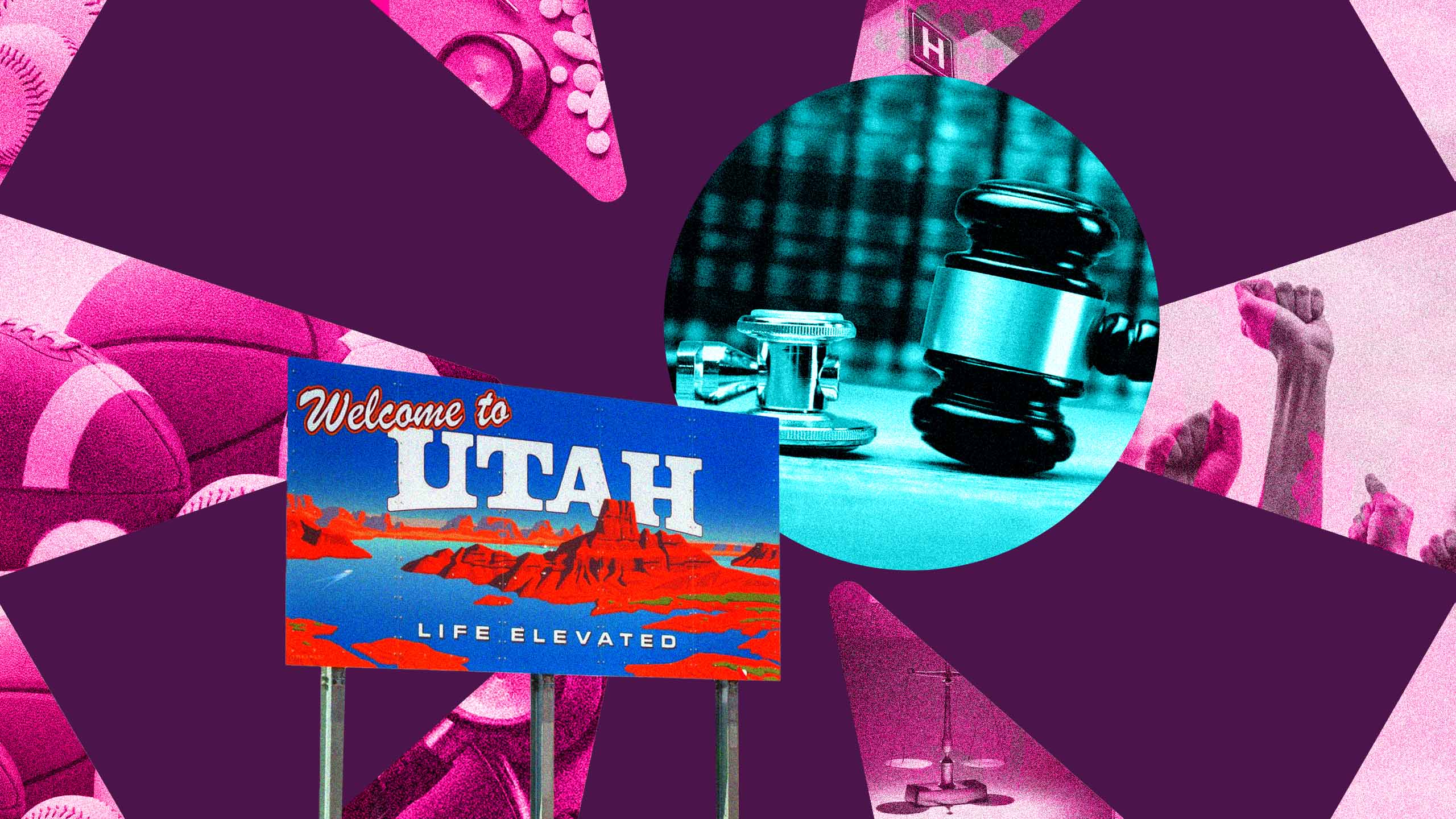Once upon a time, Utah was an American epicentre of anti-LGBTQ2S+ culture. With the state’s large Mormon population, the church mostly succeeded in socially, culturally and politically ostracizing queer and trans people throughout the 20th century and into the early 2000s.
This has been disastrous for the mental health and well-being of queer and trans youth in Utah. According to the Utah Department of Health, suicide is the leading cause of death for teenagers in Utah, and the risk is especially high for the state’s LGBTQ2S+ youth population.
Over time, Utah has started to moderate. It began with a 2009 ban on anti-gay discrimination in housing and employment in Salt Lake City, which was endorsed by local church leaders. A few years later, in 2015, a state house bill enshrined non-discrimination protections for LGBTQ2S+ Utahns alongside broad religious exemptions. It was a small but needed step in the right direction.
The state’s non-discrimination act even became a model for a Republican bill seeking to enshrine LGBTQ2S+ rights in federal civil rights law in December 2019. That bill, unsurprisingly, gained little traction amongst Democrats who preferred the much broader Equality Act, and was mostly ignored by a resurgent anti-trans wing of the national Republican party.
Nevertheless, “Utah-style compromise” became a common buzzword in the LGBTQ2S+ political sphere.
The Utah queer moderation hit a nadir last year when its Republican governor, Spencer Cox, cited his concerns over the state’s suicide and mental health statistics in vetoing a bill that would have banned trans girls from girls school sports.
“I must admit, I am not an expert on transgenderism,” Cox wrote in a statement about his veto. “I struggle to understand so much of it and the science is conflicting. When in doubt, however, I always try to err on the side of kindness, mercy and compassion.”
The governor’s statement seemed to solidify the state’s reputation as the great LGBTQ2S+ compromise state. It was supposed to be a place where people didn’t understand or even agree with their queer and trans neighbours, but at least they’d treat them with a measure of compassion.
Unfortunately, that reputation is now dead and buried.
Late last week, the state’s legislature passed a bill to ban transition healthcare for trans minors—and Governor Cox signed it without hesitation. The bill does have a carveout for youth diagnosed with gender dysphoria before the bill was signed into law to receive treatment if they meet a set of requirements. But any youth diagnosed with gender dysphoria after the bill comes into effect are to be barred from receiving treatment.
Additionally, the state will create a certification process for medical providers who provide transition care for trans youth who were diagnosed before the bill went into effect last week. It also allows any patient to sue a provider for malpractice if they “disaffirm consent” for the treatment before age 25. It’s clear these additional measures are designed to drive providers in the state away from providing care.
The new law is a slightly different version of similar bans written by out-of-state conservative special interest groups and already passed in states like Arkansas and Alabama. Despite a spineless statement by Cox that accompanied his signing of the bill—in which he tried to claim that there’s uncertainty within the medical community over whether transition is an effective treatment for gender dysphoria—the law’s passage effectively puts an end to the state’s reputation for compromising on queer and trans lives.
The medical science behind youth transition is pretty simple to understand. Puberty blockers allow a young person to press the pause button on puberty, allowing them to get to a more mature stage of their lives before making more permanent decisions about whether they want to transition medically. At the same time, blockers shield youth from the potentially painful process of going through the wrong type of puberty. Once they’re older, youth can decide between resuming their natural puberty or starting hormone replacement therapy (HRT).
The medical consensus is overwhelming: blockers and HRT to treat gender dysphoria have been endorsed by every major medical association in the U.S.
Utah’s law is egregious and fully abusive to trans kids. Instead of caring, loving families making private, highly considered medical decisions with their doctors, Governor Cox has appointed himself the ultimate authority on the lives of trans youth.
Nothing about the legislature’s decision to pass the bill or the governor’s decision to sign the bill represents “kindness, mercy [or] compassion.”
Those of us in the queer community expected better from the compromise state. Perhaps we shouldn’t have. Utah’s turn to such blatant extremism is just the latest betrayal in the ongoing assault on America’s trans youth.


 Why you can trust Xtra
Why you can trust Xtra


